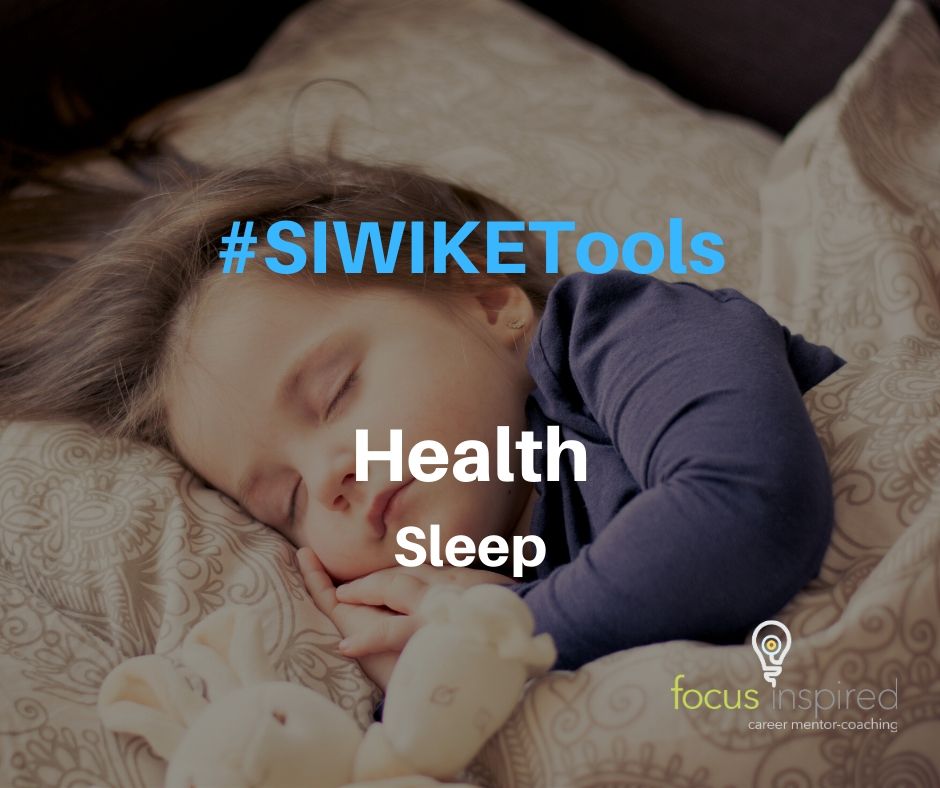
SIWIKE tools : Health – Sleep
When working with clients I will often start with making sure some fundamentals are taken care of. I’ll often start with their health: nutrition, exercise, sleep being three important pillars. If those aren’t taken care of, then the rest of the career journey becomes much more difficult.
Sleep is important. Full-stop. When you’re young and in your school years it may not seem so. Then you might develop a bad habit of poor sleep patterns. The amazing thing about the human body is that it becomes a custom to that. I compare a lack of sleep like the low power mode on your phone. If you have a phone then you’ve probably got it to 20% battery then the low power mode turns on and things become much slower and much more difficult to do. The difference with sleep is that it’s as if low power mode was capped at maybe 80%, or 70% or even 60% or more for some and that seems like the new norm. If you’ve ever had a bit of mental fog or had trouble remembering things, that could be a symptom of lack of sleep. Either in quality or quantity. And if you’ve ever got a really great night’s sleep. Then you’ll wonder how you ever did without.
Here are a few tips I’ve encountered to help to get a better night’s sleep.
Blackout curtains
If you’ve ever been camping and looked at the stars, you’ll notice how much light pollution is out there. Went outside of the city there are way more stars. You can see the Milky Way. When you’re in the city, your street lamp at the edge of your street feels parts of your home with light. Even in a condo complex, there will probably be light streaming in. Humans were previously sleeping in caves or huts. There were no external lights causing light pollution. Our skin and eyes have developed to take the signals of the rising sun and wake us up appropriately. Unfortunately over the millennia and centuries, our systems have gone a bit haywire with the invention of the lightbulb. It’s no wonder that we have trouble sleeping as your body hasn’t naturally adapted to those artificial lights.
While not perfect, a blackout liner can remove much of the light pollution and keep our bodies signalling that it’s still time to sleep. You can use a high mask as the light receptors in your eyes are a prime indication for your body to wake up. However, as your skin receptors also detect light than a blackout liner is better. Blackout liners are imperfect because the light coming from the rising sun should naturally wake you up. So you might need some automated, IoT curtains or something to help with that.
Sleep ritual
When I put my kids to bed, we often follow a set routine. Drink a warm glass of milk. Take a warm shower. Change into their pyjamas. Read a story. Off to bed. As adults, a similar sleep ritual could be helpful in signalling to our bodies that it’s time to get a good night’s rest. Some parts of those rituals should be a screen curfew meaning that you avoid using phones, laptops, iPads, TVs at least an hour before going to bed. Also, a caffeine curfew to you make sure not to drink caffeine four (or more for some) hours before going to bed.
Bedtime intentions
One of the simplest sleep tricks to implement is to have a bedtime intention. As you are in bed and drifting off to sleep, in your mind, set an intention to wake up at a particular time being rested and rejuvenated. Say something like “I will wake up at 6:30 AM rested and rejuvenated”. Then off to dream time.
Sleep often works in tandem with exercise and nutrition. If you sleep well then your body can utilize the nutrition provided better. You can recover from exercise better and provide you with more energy.
What other sleep hacks and suggestions do you have?
Follow:Share: